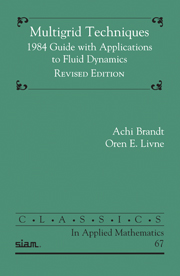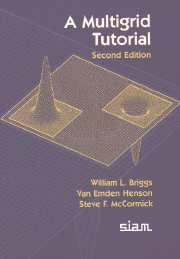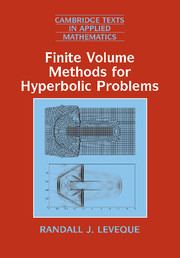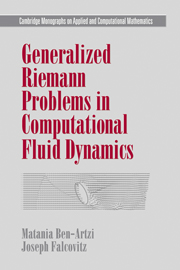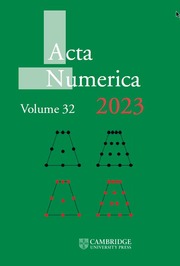Multigrid Techniques
This classic text presents the best practices of developing multigrid solvers for large-scale computational problems in science and engineering. By representing a problem at multiple scales and employing suitable interscale interactions, multigrid avoids slowdown due to stiffness and reduces the computational cost of classical algorithms by orders of magnitude. Starting from simple examples, this book guides the reader through practical stages for developing reliable multigrid solvers, methodically supported by accurate performance predictors. The revised edition presents discretization and fast solution of linear and nonlinear partial differential systems; treatment of boundary conditions, global constraints and singularities; grid adaptation, high-order approximations and system design optimization; applications to fluid dynamics, from simple models to advanced systems; new quantitative performance predictors, a MATLAB® sample code and more. Readers will also gain access to the Multigrid Guide 2.0 website, where updates and new developments will be continually posted, including a chapter on Algebraic Multigrid.
- The definitive guide to effectively building multigrid solvers from the principal developer of this field
- Classical material collected over 40 years in many successful research programs and linked to an ongoing project of continuously expanding and updating the material based on recent cutting-edge developments
- Readers will gain access to the Multigrid Guide 2.0 website, where updates and new developments will be continually posted
Product details
No date availablePaperback
9781611970746
230 pages
229 × 153 × 13 mm
0.34kg
Table of Contents
- List of figures
- List of tables
- Preface to the Classics Edition
- Preface
- Introduction
- 1. Elementary acquaintance with multigrid
- Part I. Stages in Developing Fast Solvers:
- 2. Stable discretization
- 3. Interior relaxation and smoothing factors
- 4. Interior two-level cycles
- 5. Boundary conditions and two-level cycling
- 6. Many-level cycles
- 7. Full multi-grid (FMG) algorithms
- Part II. Advanced Techniques and Insights:
- 8. Full approximation scheme (FAS) and applications
- 9. Local refinements and grid adaptation
- 10. Higher-order techniques
- 11. Coarsening guided by discretization
- 12. True role of relaxation
- 13. Dealgebraization of multigrid
- 14. Practical role of rigorous analysis and quantitative predictions
- 15. Chains of problems: frozen τ
- 16. Time dependent problems
- Part III. Applications to Fluid Dynamics:
- 17. Cauchy–Riemann equations
- 18. Steady-state Stokes equations
- 19. Steady-state incompressible Navier–Stokes equations
- 20. Compressible Navier–Stokes and Euler equations
- 21. Remarks on solvers for transonic potential equations
- Appendix: test cycle: MATLAB code
- Bibliography
- Index.

